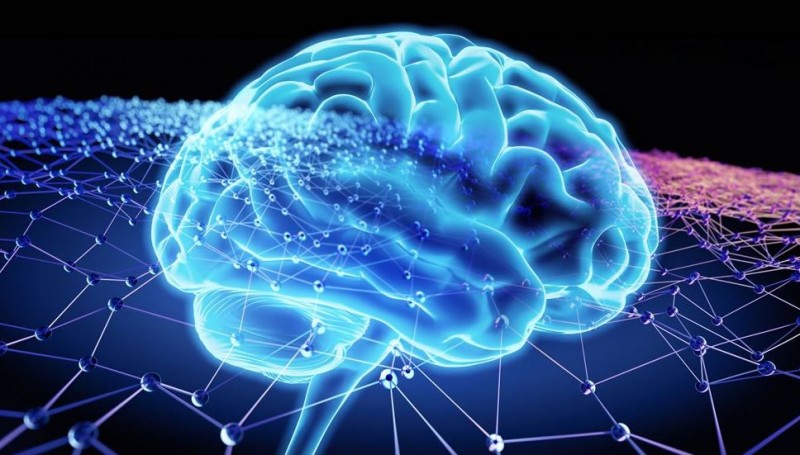
Our brain, an intricate masterpiece, is often hailed as the most energy-consuming organ in the human body. It continually buzzes with activity, orchestrating our thoughts, emotions, and bodily functions. In fact, the brain utilizes approximately 20% of the body's total energy, a remarkable feat considering its relatively small size. This article delves into the fascinating world of the brain's energy consumption, exploring the factors that contribute to its high metabolic demands.
1. Introduction
The human brain, weighing a mere three pounds on average, is a powerhouse of energy consumption. Despite its small size, this remarkable organ requires a significant amount of energy to sustain its complex operations. From controlling bodily functions to processing thoughts and emotions, the brain's voracious appetite for energy ensures its uninterrupted functioning.
2. The Brain's Energy Consumption
The Brain's Basal Metabolic Rate
The brain consumes a substantial amount of energy even when at rest, known as the basal metabolic rate. This metabolic activity maintains the brain's basic functions, including regulating body temperature, controlling breathing, and supporting vital organs.
Glucose: The Brain's Preferred Fuel
Glucose, a type of sugar derived from carbohydrates, serves as the primary energy source for the brain. It fuels the brain's extensive network of neurons, allowing them to communicate and transmit information effectively. The brain possesses a limited ability to store glucose, emphasizing the continuous supply needed for optimal function.
Oxygen Supply and Energy Production
To convert glucose into usable energy, the brain relies on oxygen through a process called oxidative phosphorylation. Oxygen is delivered to the brain via the bloodstream, providing the necessary fuel for energy production within the brain's cells.
3. Brain Activity and Energy Demand
Neuronal Signaling
When we engage in various cognitive processes, such as thinking, problem-solving, or learning, our brain cells, known as neurons, communicate through electrical signals. This neuronal signaling requires energy to transmit information across the vast neural networks within the brain.
Synaptic Transmission
Synapses, the connections between neurons, play a crucial role in information processing. The brain's energy demands significantly increase during synaptic transmission, where neurotransmitters facilitate the passage of signals from one neuron to another.
4. The Resting State vs. Cognitive Tasks
Resting State Network
Even during periods of rest, the brain remains active. It enters a default mode network, commonly referred to as the resting state network. Although the energy requirements during this state are lower than during cognitive tasks, the brain still consumes a substantial amount of energy.
Activation During Cognitive Processes
Engaging in cognitive tasks, such as reading, problem-solving, or decision-making, triggers heightened brain activity in specific regions. These tasks demand additional energy to support the increased neural firing and information processing required for optimal performance.
5. Energy Efficiency of the Brain
Neural Efficiency Hypothesis
While the brain consumes a significant amount of energy, it also operates with remarkable efficiency. According to the neural efficiency hypothesis, highly efficient brains require less energy to perform certain cognitive tasks compared to less efficient brains. This efficiency is thought to arise from optimized neural connections and increased synaptic efficiency.
Energy Trade-Offs in Brain Evolution
Throughout human evolution, the brain has undergone significant changes, increasing in size and complexity. However, these evolutionary adaptations come with trade-offs. The energy demands of the brain necessitate a redistribution of resources within the body, potentially influencing other physiological functions.
6. Factors Influencing Brain Energy Consumption
Age
The brain's energy requirements vary throughout the lifespan. In early development, the brain consumes a substantial amount of energy as it undergoes rapid growth and neuronal connections are established. As we age, the brain's energy consumption becomes more focused on maintenance and functional processes.
Sleep Patterns
Quality sleep plays a vital role in brain health and energy regulation. Disrupted or inadequate sleep can impair brain function and increase energy demands, potentially leading to cognitive difficulties and fatigue.
Nutritional Factors
A well-balanced diet, rich in nutrients and antioxidants, is essential for optimal brain function. Certain dietary factors, such as omega-3 fatty acids and B vitamins, support energy production and cognitive processes. Conversely, a poor diet lacking in essential nutrients can negatively impact brain energy levels and overall function.
7. Implications of High Brain Energy Consumption
Neurological Disorders and Energy Deficits
Disruptions in the brain's energy supply can contribute to the development of neurological disorders. Conditions like Alzheimer's disease, which involve energy deficits and impaired glucose metabolism, highlight the importance of maintaining adequate energy levels for brain health.
Cognitive Fatigue
Prolonged cognitive tasks can lead to mental fatigue, characterized by decreased attention, concentration, and cognitive performance. The brain's limited energy reserves can become depleted, resulting in reduced efficiency and diminished cognitive abilities.
8. Strategies to Support Brain Health
Balanced Diet and Hydration
A well-rounded diet, comprising fruits, vegetables, whole grains, lean proteins, and healthy fats, supports optimal brain health. Staying adequately hydrated also plays a role in maintaining optimal brain function.
Regular Physical Exercise
Engaging in regular physical exercise enhances blood flow and oxygen delivery to the brain, promoting overall brain health and energy metabolism. Exercise has been linked to improved cognitive function and a reduced risk of neurodegenerative diseases.
Quality Sleep and Rest
Prioritizing quality sleep and incorporating periods of rest throughout the day are essential for allowing the brain to recharge and replenish its energy reserves. Establishing a consistent sleep routine and creating a sleep-friendly environment can contribute to improved brain function.
9. Conclusion
The human brain's insatiable appetite for energy is a testament to its complexity and importance. Consuming approximately 20% of the body's total energy, the brain orchestrates our thoughts, emotions, and bodily functions. Understanding the factors that influence the brain's energy consumption can help us optimize brain health, supporting cognitive function and overall well-being.
The Small Intestine: Exploring Its Length and Functions